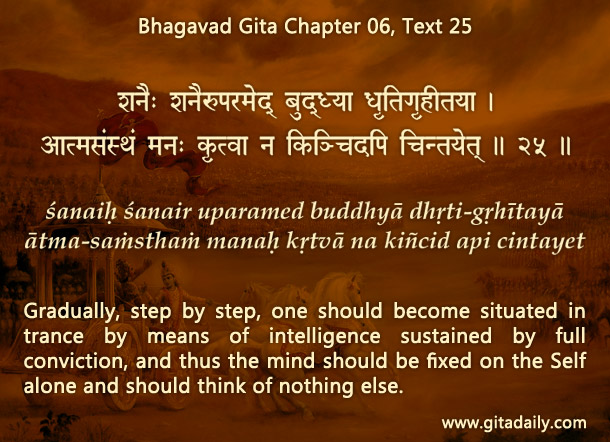During our idle time the mind works overtime
We often look forward to holidays when we can just relax, free from life’s daily grind. But unfortunately, during such breaks, small things get to our nerves.
Why does this happen? Because our hyperactive mind doesn’t let us relax.
We live in a culture that is largely in the mode of passion. And we live with a mind that too is mostly in the mode of passion. Being internally and externally driven by passion, we feel in control only when we are running around, doing things that give us a sense of being in charge. During our break time, when we are not ticking our to-do list, the mind doesn’t have anything passionate to get into. Consequently, it gravitates toward the mode of ignorance, where it starts hyperventilating about its apparent lack of control. It starts fretting over the many things that have gone wrong in the past. Or it starts fearing the many things that may go wrong in the future. When our mind works overtime in such fretting and fearing, small things soon start annoying us.
Pertinently, the Bhagavad-gita (06.25) reminds us that whenever our mind wanders, we need to refocus it. How do we apply this Gita directive to prevent the mind from spoiling our leisure time? By understanding that breaks may not automatically relax us; we may need to conscientiously plan to use those breaks for engaging our mind in wholesome activities that raise it to the mode of goodness. In that reflective mode, we can contemplate and appreciate the things that really count, including especially our benevolent Lord, who always stays with us in our hearts.
When we thus use our leisure time to gently uplift our mind, not to naively wander with it, our breaks will become relaxing and rejuvenating.
Think it over:
- How does our mind make us miserable during our idle time?
- How can we use our breaks more fruitfully?
- What can you do to gently uplift your mind during your leisure time?
***
06.26 From wherever the mind wanders due to its flickering and unsteady nature, one must certainly withdraw it and bring it back under the control of the Self.
To know more about this verse, please click on the image
Explanation of article:
https://www.youtube.com/watch?v=gVcvxbY6oiE&feature=youtu.be
Podcast:


MIND can never be IDLE